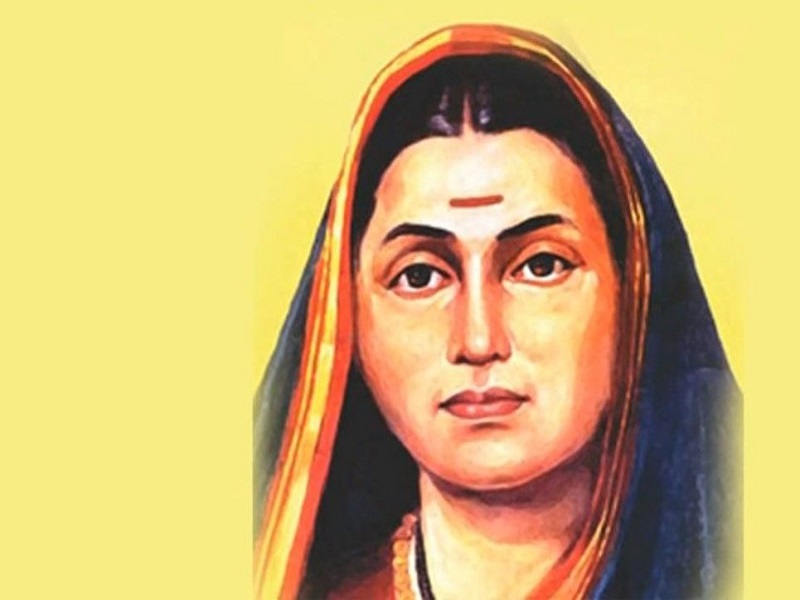It is commonplace in English scholarship and other writing to find references to Mahatma Jotirao Phule (1827-1890) as the first modern public intellectual in India to use the word Dalit in Marathi to name caste communities of Untouchables. In part this is because Jotirao Phule is widely regarded as one of the key voices inaugurating modern India's political movements against oppression premised on caste, gender, and religious difference.
As I began a project involving the poetry of Jotirao Phule last year, I expected to find references to Dalits or uses of the word such as d?nadalit (deprived and broken), paddalit (downtrodden), dalitoddh?r (Dalit upliftment) in his work. But I have not yet found any instances of the word or related phrases in Jotirao Phule's available published literature. The references may be there; I just haven't found them yet.
However, I have found these terms used in the publications of another Phule.
This is Savitribai Phule (1831-1897), Jotirao Phule's wife and political partner. The two worked side by side to open educational institutions for women, Shudras, and Dalits in the latter half of the nineteenth century in Pune. When Savitribai Phule is mentioned in scholarly and public contexts, she is rightly praised as a pioneering educator. Indeed, the government of Maharashtra recognised this fact in 2014 when it renamed the prestigious Pune University as the Savitribai Phule Pune University.
Savitribai Phule is often referred to with the deserved epithet, "Krantijyoti" or the Light of Revolution. This honorific not only recognises her extraordinary and brave work in the field of education, but also signals her powerful, richly layered, and strident political thought that she expressed through her extraordinary writing.
Yet Savitribai Phule the writer and thinker, the firebrand intellectual and author in her own right, is an aspect of her legacy that is often overlooked. This is surprising because Savitribai Phule articulated through poetry many of the same ideas that Jotirao Phule would express in his many writings yet through her own point of view and distinctive poetic voice. It is also not commonly mentioned that she published her first book in 1854, which may have been 15 years before Jotirao Phule's first widely circulated publications in 1869 as recorded in his collected works.
It is in this initial book of poetry by Savitribai Phule in 1854, a collection of poems entitled K?vyaphule ("Flowers of Poems"), that she first used the word dalit.
The word appears in the last poem in the collection, a poem in which Savitribai Phule imagines a dialogue between herself and Jotirao Phule. The poem, in the abha?g poetic form, depicts the couple watching the sun rise together in the morning. As with other poems in the collection, Savitribai Phule uses metaphors from the natural world to express injustices within the human world.
In this poem, the "dark night" is a metaphor for the ignorance forced upon women, Shudras, and Dalits, a repressive condition favored by the "owl," the creature that preys on its victims in the darkness, a metaphor for oppressive forces and intentions. By contrast, the morning sun and the rooster's call is a metaphor for knowledge and humanism, represented by butterflies and birds, the advent of a new era of opportunity for women, Shudras, and Dalits in Phule's words.
In this poem Savitribai Phule places the word Dalit in the voice of Jotirao Phule. Here is a small portion of the longer poem in the original Marathi followed by my translation. The original poem here and the one below are both taken from the government of Maharashtra's edition of her work edited by MG Mali and published in 1988:
??????:
??? ??? ???? ? ???? ??????
???????? ????? ???? ???? ????
??????????? ? ?????? ??????
?????? ?????? ? ????????? ????
?????? ?????? ? ??? ??????
???? ?????? ? ??????? ?? ????[1]
0 COMMENTS



